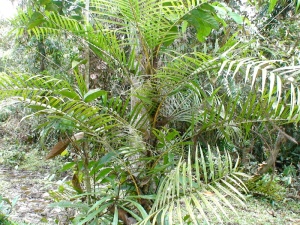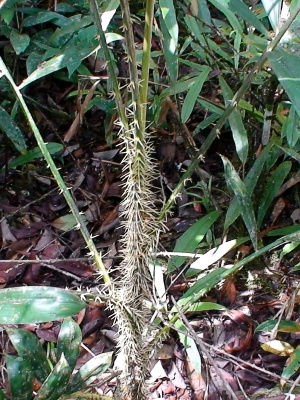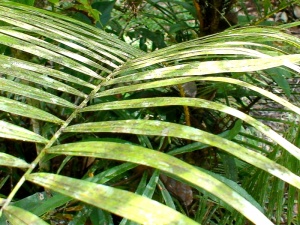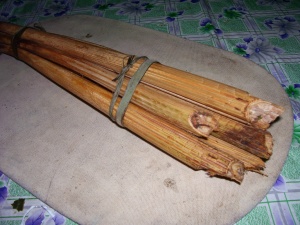Difference between revisions of "Wey"
Jump to navigation
Jump to search
| Line 27: | Line 27: | ||
#The cane fibre from the rattan palm is used for tying, and weaving baskets and mats [[#References|<sup>(1)</sup>]] | #The cane fibre from the rattan palm is used for tying, and weaving baskets and mats [[#References|<sup>(1)</sup>]] | ||
#The fruits are generally edible [[#References|<sup>(1)</sup>]] | #The fruits are generally edible [[#References|<sup>(1)</sup>]] | ||
| − | #The shoots of most | + | #The shoots of most varieties (eg. '''wey pa'it''') are edible, and eaten as vegetables [[#References|<sup>(1)</sup>]] |
;Malay: | ;Malay: | ||
Revision as of 11:46, 30 November 2007
Common Names
- Kelabit
- wey (wae)
- English
- rattan palm, cane
- Malay
- rotan
Encyclopedic info
- Scientific name
The following genus of rattan palms have been identified in Pa' Dalih (1)
- Daemonorops
- Calamus
- Korthalsia
- Plectocomia
- Ceratobulus
- English
- The cane fibre from the rattan palm is used for tying, and weaving baskets and mats (1)
- The fruits are generally edible (1)
- The shoots of most varieties (eg. wey pa'it) are edible, and eaten as vegetables (1)
- Malay
References
- Ethnobotany of the Iban & Kelabit by Hanne Christensen
- Royal Botanic gardens, Kew
- Wikipedia



